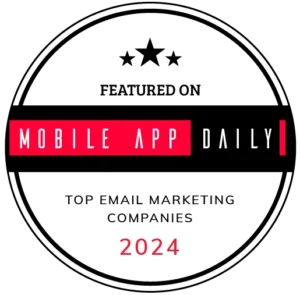Businesses that leverage data analytics have a tremendous advantage over their rivals in today’s data-driven environment. Lead generation is essential to the long-term growth of B2B companies. By utilizing data analytics, this vital process may be greatly optimized.
Imagine having a deep understanding of the behavior, preferences, and needs of the right prospects in addition to being able to identify them. The secret to data analytics is that it transforms unstructured data into meaningful insights that can be used to make more informed decisions, target marketing campaigns, and ultimately increase conversion rates.
However, that is only the tip of the iceberg. When it comes to generating B2B leads, data analytics has many advantages. Enhanced targeting and segmentation ensure that your communications reach the intended recipients.
Additionally, predictive insights let you remain ahead of the curve by foreseeing the demands of your leads before they even become aware of them. Let us explore in more detail how data analytics may transform your B2B lead generating opportunities, enhancing their effectiveness, efficiency, and eventually yielding more rewards.
Comprehending Data Analytics for B2B Lead Generation
Data analytics entails gathering, processing, and analyzing data to get relevant insights. Behavioral patterns, interaction history, firmographic data, and demographic information are just a few of the data points that are examined during the B2B lead-generating process. Through the examination of these data points, companies can find correlations, trends, and patterns that guide their lead-generating tactics. Let’s look at the different benefits of utilizing data analytics in B2B lead generation.
1. Improved Segmentation
Data analytics allows businesses to more effectively segment their target audience. Through the examination of firmographic and demographic data, companies can develop comprehensive buyer personas and focus their marketing campaigns on particular job roles, company sizes, or industries. The possibility of lead converting is increased because of this precision in ensuring that marketing messages resonate with the proper target.
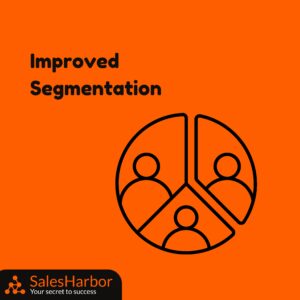
2. Higher-Quality Leads
A major obstacle in B2B lead generation is guaranteeing the quality of leads. By examining a lead’s behavior and level of involvement with the business, data analytics assists in lead qualification. Through the analysis of lead interactions with emails, websites, and marketing materials, companies can rank leads according to their propensity to convert, concentrating their efforts on high-potential customers.
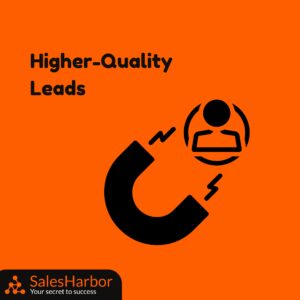
3. Personalized Marketing Campaigns
Effective lead generation relies heavily on personalization. With the use of data analytics, companies may design customized marketing strategies that are suited to the unique requirements and tastes of their target market. Companies may provide relevant content and offers, improving the customer experience and raising conversion rates, by utilizing data on previous interactions, purchase history, and preferences.

4. Predictive Insight
Utilizing past data and machine learning algorithms, predictive analytics makes predictions about what will happen next. Predictive insights enable firms to find leads with the highest conversion rates and anticipate customer behavior in lead generation. Companies may improve conversion rates and shorten the sales cycle by engaging with prospects at the appropriate moment and with the appropriate message thanks to this proactive strategy.
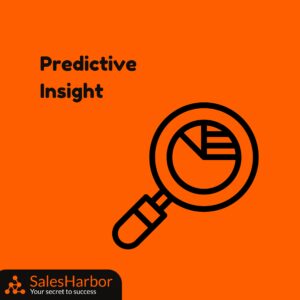
5. Improved Customer Insights
An enhanced comprehension of consumer behavior, inclinations, and issues is possible with the help of data analytics. Thanks to this knowledge, companies can create marketing plans that work better and may customize their messaging to meet the demands of particular target audiences. Businesses can craft more persuasive value propositions by knowing what drives prospective leads.
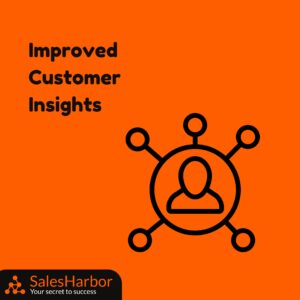
6. Improved Response Times
Businesses may swiftly find and respond to new leads by using real-time data analytics. Sales teams may interact with leads at the best times to increase conversion rates by having instant access to data. This flexibility is particularly crucial in competitive markets since timely follow-up can have a big impact.
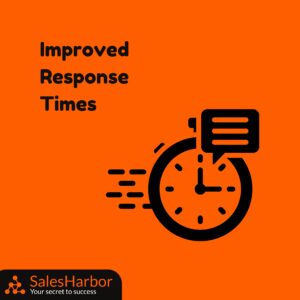
7. Enhanced Allocation of Resource
Businesses can deploy resources more effectively by using data analytics to determine which lead-generation initiatives are most successful. Businesses can optimize waste and boost overall efficiency by concentrating time, money, and resources on techniques that produce the best outcomes in their marketing and sales campaigns.
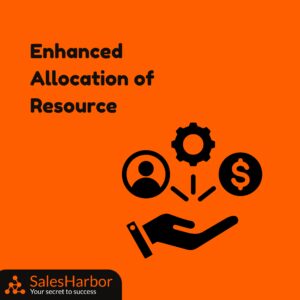
8. Effective ROI Calculation
For lead generation initiatives to be effective, tracking return on investment (ROI) is essential. Campaign performance may be precisely measured thanks to data analytics, which also reveals which projects yield the best results. Justification of marketing expenses and future investment decisions depend heavily on this data.
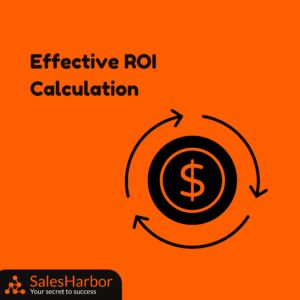
9. Identifying Market Opportunity
Finding new growth prospects might be facilitated by analyzing consumer and market trends. Enterprises can discover untapped market niches, new trends, and prospective growth prospects with the aid of data analytics. Organizations can leverage emerging prospects and sustain a competitive advantage by adjusting their lead-generating tactics in tandem with market shifts.

10. Comparative Analysis and Monitoring of Performance
Businesses can evaluate their lead generation efforts against competitors and industry standards with the use of data analytics. Businesses can determine their strengths and opportunities for development by comparing performance measures. Setting reasonable targets, honing tactics, and making sure lead generation initiatives are consistently in line with industry standards and best practices are all made possible by this ongoing performance monitoring.
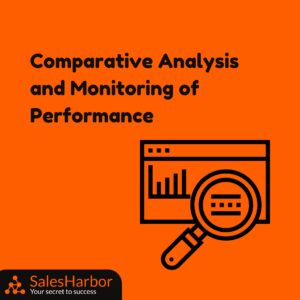
Conclusion
Through improved targeting, improved lead quality, and personalization of marketing initiatives, data analytics transforms the generation of B2B leads. Businesses may create improved results and sustainable growth and position themselves for success in a competitive market by making the necessary tool investments, guaranteeing data accuracy, and encouraging teamwork. Adopt data analytics to generate leads more intelligently and efficiently.
If you’re looking for experts who understand this industry and its challenges, reach out to us for a quick intro call and get to know more about how SalesHarbor can assist you. We can integrate your desired strategies into your business’s framework seamlessly.
Read another article by Data Science Dojo on this topic.


